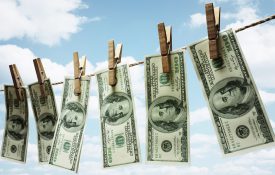-
False memories: from the lab to the courtroom
The Guardian: For decades now, we’ve known that our memories are not as infallible as we like to think. And with research now showing that researchers are able to plant entirely novel memories that never actually happened – the need for psychological research in the courtroom has never been more pressing. But as we find out, the world of false memory is a murky and uncertain one. Helping Ian Sample clear the way this week is London South Bank University Criminologist and Expert Witness Dr Julia Shaw, and – one of the field’s most prominent pioneers - Professor Elizabeth Loftus, who bravely used much of her expertise during the “Satanic Panic” of the 1980s. Read the whole story: The Guardian
-

How Dishonest Behavior Can Turn Into Corporate Misconduct
Focusing on customer service can help to boost business performance, but high ethical standards also play an important role in driving these outcomes, researchers find. Visit Page
-
Teaching Teenagers to Cope With Social Stress
The New York Times: Almost four million American teenagers have just started their freshman year of high school. Can they learn better ways to deal with all that stress and insecurity? New research suggests they can. Though academic and social pressures continue to pile on in high school, teenagers can be taught effective coping skills to skirt the pitfalls of anxiety and depression. David S. Yeager, an assistant professor of psychology at the University of Texas at Austin and a leading voice in the growing effort to help college students stay in school, has been turning his attention to younger teenagers to help shore up their resilience at an earlier age.
-
Could Video Chats Be Good For Your Infant?
NPR: Since 2011, the American Pediatric Association has advised parents of children under age 2 to avoid screen time for their infants, noting the accumulating evidence of potential risks and the lack of evidence for educational or developmental benefits. Yet screens are an integral part of many young children's lives. For some families, tablets, computers and smartphones aren't just a source of passive entertainment; video chat platforms such as FaceTime and Skype provide a way to connect with distant family and friends. Read the whole story: NPR
-
Use Mirroring to Connect With Others
The Wall Street Journal: It is a common experience: You’re deep in conversation with someone and suddenly realize you’re both holding the same pose, leaning forward and propping an elbow on the table. Or you notice you’re suddenly starting to pick up the other person’s Southern accent or fast, loud speech. Mirroring a conversation partner’s gestures, expressions, posture, vocal pitch or tone can reflect rapport or a desire to please, research shows. It is seen most often between romantic partners, but it happens at work, too, in networking sessions, meetings and conversations with colleagues. ...
-
Kids Are Tiny, Judgmental Snobs When It Comes to Morality
New York Magazine: There’s a line in one of the Harry Potter books where Dumbledore, the wise old headmaster of Hogwarts, reassures Harry that despite some Voldemort-ish tendencies, there’s one very important thing that sets him apart from the Dark Lord: “It is our choices, Harry, that show who we truly are, far more than our abilities.” It’s a great line, and it works: Harry feels better about himself, and the wizarding world goes on turning. A younger wizard, though, would not be so easily placated.

